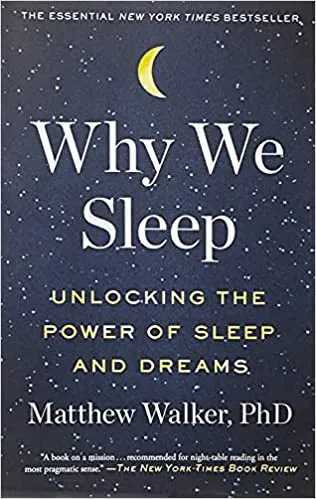The average adult needs 7-8 hours of good quality sleep to function properly. However, some need more or less. For example, I can sleep max 6–7 hours, and if I sleep more than 6 hours, I usually get tired and feel lethargic all day. I also shared my top 6 habits to sleep better at the end.
The most important part is you need to find out how much sleep you need. As I mentioned, every human has different requirements for sleep. We all know that sleep is a vital function for us. It boosts our immune system, helps mental health, and can prevent many diseases like diabetes, heart condition, depression, anxiety, cancer, obesity, etc.
The best bridge between despair and hope is a good night’s sleep.
— Dr. Matthew Walker
I never spent enough thoughts on why sleep is so important until I read this book by Matthew Walker.

Fact: Study shows that there are people who need less than 6 hours of sleep and can function perfectly fine. However, the percent is meager, merely 1%. I am fortunate to be in 1%. But it’s not that great either sometimes I want to sleep more, especially on vacations or weekends, but I get tired by just lying in bed for a long time.
Pro Tip: To find out how much sleep you need? Well, If you wake up tired and feeling all day lethargic and/or cannot wait to go home for a nap. It means you need sleep; like my partner, she sleeps at least 8–9 hours to function properly.
There could be many reasons you are not getting proper sleep, including health conditions, environment, and room temperature. But in most cases, it’s timing which time you are going to bed and how much quality sleep you are having.
Why sleep is great for us
Sleep can boost our immune system, which helps us live a healthy life by battling unwanted germs. If you have had sleep issues for a long time, I would suggest visiting your physician, may there be more severe issues than your bedroom environment.
Sleep deprivation is the most common brain impairment.
— William C Dement
Sleep to get slim
Yes, you read it right, not having enough sleep is one of the main causes to put on weight. Research has shown that, on average, people who sleep less than 7 hours are at risk of putting on more weight or becoming obese than those who sleep at least 7 hours.
Sleep vs. mental health
Remember that a night of good sleep is mandatory if you have an exam the next day or any important meeting, instead of studying all night or working on your presentation deck. It’s good to have quality sleep; therefore, you can focus on the big day. Research shows that chronic sleeping disorders can lead to anxiety and depression. Research showed a great correlation when people were depressed; researchers found sleep deprivation. They were so busy in their lives and could not find more than 6 hours of sleep.
Sleep is the single most effective thing we can do to reset our brain and body health each day.
— Dr. Matthew Walker
Sleep vs. diabetes
Long-term sleep deprivation has been linked to an increase in heart rate, blood pressure, and levels of certain chemicals connected to inflammation, all of which may place additional strain on your heart.
See your physician
If all these efforts are not working out, it’s time to see your doctor. You have trouble sleeping for weeks; it might be possible that lack of sleep affects your productivity at work and/or in daily life.
My top 6 tips to sleep better
- Set a sleep Schedule
- Try to avoid caffeine at least 6 hours before bedtime, try decaf
- Exercise: hit the gym, walk, hike (best), try outdoor activities
- Avoid big meals before bedtime, focus on a huge breakfast
- Set room temperature, invest in excellent curtains to go pitch black
- Do not sleep with your cellphone at night




